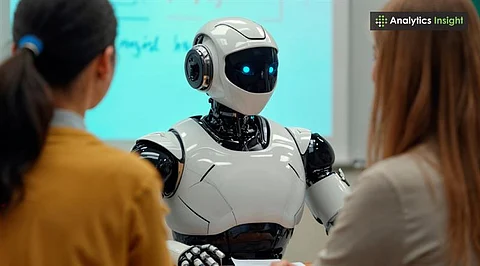The education sector is undergoing a significant transformation with the introduction of AI learning assistants, poised to reshape how students and educators interact in 2025. These technologies are facilitating personalized education, enabling tailored learning experiences for each student based on individual pace and style. As a result, traditional teaching methods are evolving, allowing educators to concentrate on mentorship and complex problem-solving rather than routine tasks.
Enhancing Student Learning Experiences
AI learning assistants provide a range of benefits that contribute to improved academic performance and engagement among students. One of the most notable advantages is their ability to offer personalized learning experiences. Unlike traditional classrooms, where teachers often struggle to address the unique needs of every student, AI tools can assess individual learning speeds and styles. They identify areas where students may be struggling and adjust educational materials accordingly.
Another key feature of AI assistants is their availability. Students can access support 24/7, which significantly aids in exam preparation. This constant availability helps to alleviate exam-related stress and boosts student confidence. The flexibility allows students to create personalized learning schedules, enhancing their educational journey.
Virtual teaching assistants also play a crucial role. They provide insights into students’ learning patterns, helping educators refine their teaching strategies. By streamlining routine tasks such as creating quizzes and assessing student performance, AI tools free up valuable time for teachers, fostering a more engaging classroom environment.
Addressing Diverse Learning Needs
AI learning assistants excel in making education accessible to all students, particularly those with disabilities or language barriers. Advanced features such as text-to-speech capabilities, translation services, and user-friendly interfaces cater to students facing challenges like dyslexia. These tools make it easier for them to engage with lessons and receive the support they need.
Moreover, AI assistants have been instrumental in tracking student progress over time. They help students identify potential career pathways by recommending skills to enhance based on their performance and interests. This guidance allows learners to explore new topics and develop competencies that are essential for their future careers.
The education landscape is rapidly evolving as AI technology becomes more integrated into learning environments. Leading institutions worldwide are already leveraging these innovations to create more effective educational experiences. Experts predict that the market for AI in education will continue to grow significantly in the coming years, further solidifying the role of technology in modern learning.
In conclusion, AI learning assistants are not set to replace teachers but rather to complement their efforts in providing quality education. By facilitating personalized learning experiences and supporting educators in their day-to-day tasks, these tools are poised to make a lasting impact on the education sector. The collaboration between human expertise and AI technology is expected to enhance educational outcomes and shape the future of learning in a positive direction.
